Are you facing the daunting task of notifying someone about legal proceedings? Crafting the perfect letter is essential to ensure clear communication and maintain professionalism. Whether you are addressing a client, a colleague, or even a business partner, it's important to convey the necessary information while also being respectful and concise. Dive into our article to discover a comprehensive letter template that will guide you through this important process.
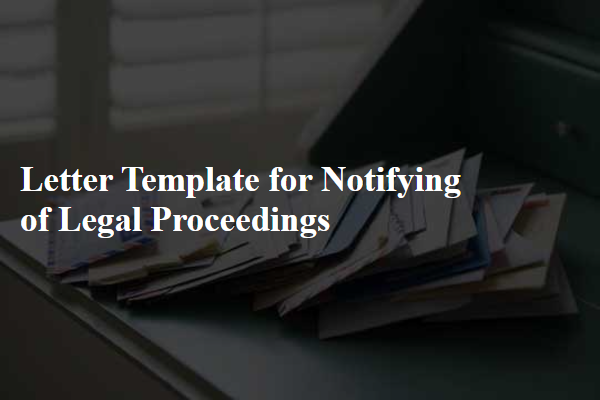
Clear identification of parties involved
Notification of legal proceedings often requires precise identification of involved parties, such as plaintiffs and defendants. For example, if the case is between John Doe (the plaintiff) residing at 123 Main Street, Springfield, and ABC Corporation (the defendant) located at 456 Industry Road, Metropolis, it is crucial to include full legal names and addresses. Case numbers assigned by the court, such as Case No. 2023-CV-789, should also be detailed for easy reference. The nature of the proceedings, whether civil or criminal, impacts the context, thus clarity is essential. This ensures that all parties are aware of their roles, responsibilities, and the potential legal ramifications tied to the case. Proper documentation fosters transparency and allows for an organized legal process.
Statement of legal action being taken
Legal proceedings may lead to significant consequences for involved parties. A statement of legal action, typically issued by law firms based on instructions from clients, serves as a formal notification regarding impending lawsuits. This document often outlines essential details including the nature of the dispute, the relevant laws being invoked, and the parties' rights and obligations. Legal terminology, such as "plaintiff" (the party bringing the action) and "defendant" (the party responding to the action), clarifies roles within the legal framework. Jurisdiction, typically established by the geographical area where the case is filed, plays a crucial role, often referencing specific court names, like the New York Supreme Court or the Los Angeles Superior Court. Key deadlines for responses, stipulations for settlements, and potential repercussions are integral components of this notification. Properly drafting and delivering this statement is critical for ensuring procedural compliance and protecting the interests of the initiating party.
Summary of relevant facts and allegations
Legal proceedings often arise from substantial events such as contractual disputes, personal injury incidents, or property conflicts. In these cases, relevant facts include dates--such as the incident occurring on January 15, 2023--location details like Main Street, Springfield, and the parties involved, including individuals or corporations. Allegations can range from breach of contract to negligence, including specific claims indicating how one party failed to uphold their responsibilities or caused harm. Accurate record-keeping, such as emails or documents exchanged between parties, plays a crucial role in substantiating claims. Clarity in these facts and allegations not only sets the tone for legal discussions but also assists in the potential resolution of disputes, either through mediation or court hearings in venues like the Springfield District Court.
Deadlines and response actions required
Legal proceedings in the case of Smith v. Greenwald have established critical deadlines demanding urgent attention. The initial filing requires a response by October 15, 2023, necessitating submission to the Superior Court of California, County of Los Angeles. Failure to provide a response could result in a default judgment against the defendant. Additionally, discovery requests are due by November 5, 2023, wherein both parties must exchange relevant documents and evidence. It is essential to adhere strictly to these timelines to ensure compliance with the Civil Procedure Rules and safeguard legal rights. Furthermore, mediation sessions are scheduled for November 20, 2023, aiming to facilitate dialogue between involved parties before proceeding to trial.
Contact information for further communication
Legal proceedings can involve complex processes and require clear communication. In such notifications, it is imperative to include specific contact information for further inquiries or clarifications. Use a professional format, detailing the name of the law firm, attorney's name, and their direct phone number, typically a 10-digit figure. Additionally, include an email address that adheres to the firm's official domain, ensuring quick and secure correspondence. Providing office hours, generally Monday to Friday, 9 AM to 5 PM, can facilitate accessibility for parties involved. This detailed contact information ensures that those affected by the legal proceedings have a reliable means of communication to address their concerns or questions about the case.
Letter Template For Notifying Of Legal Proceedings Samples
Letter template of communication concerning litigation process commencement
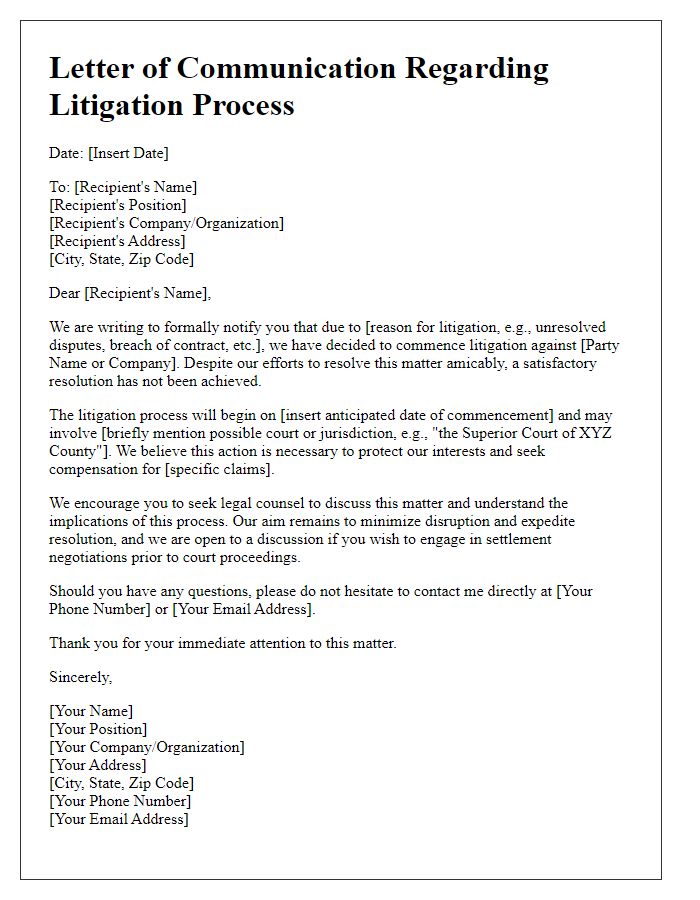

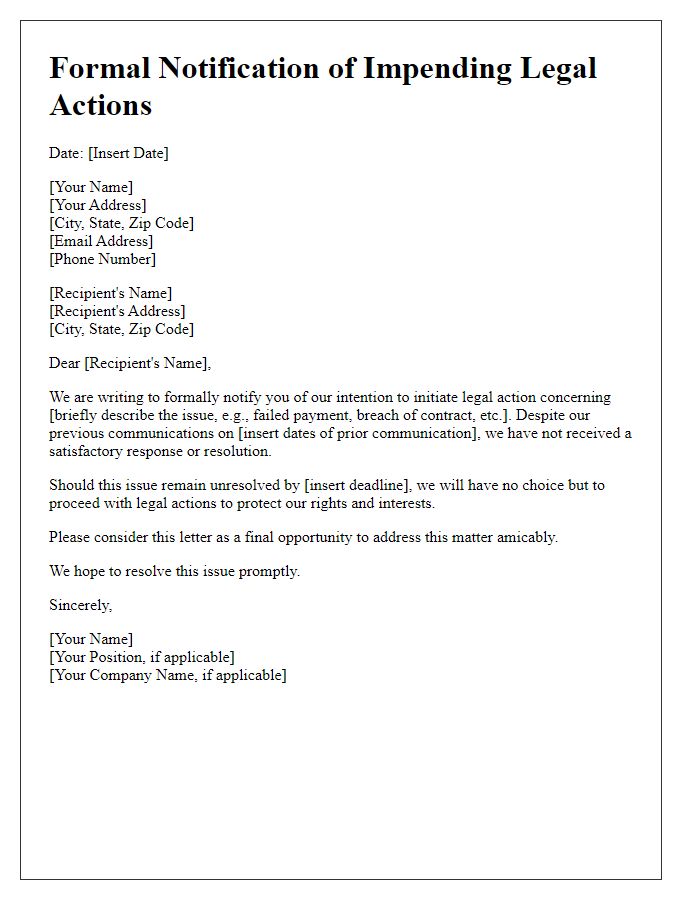
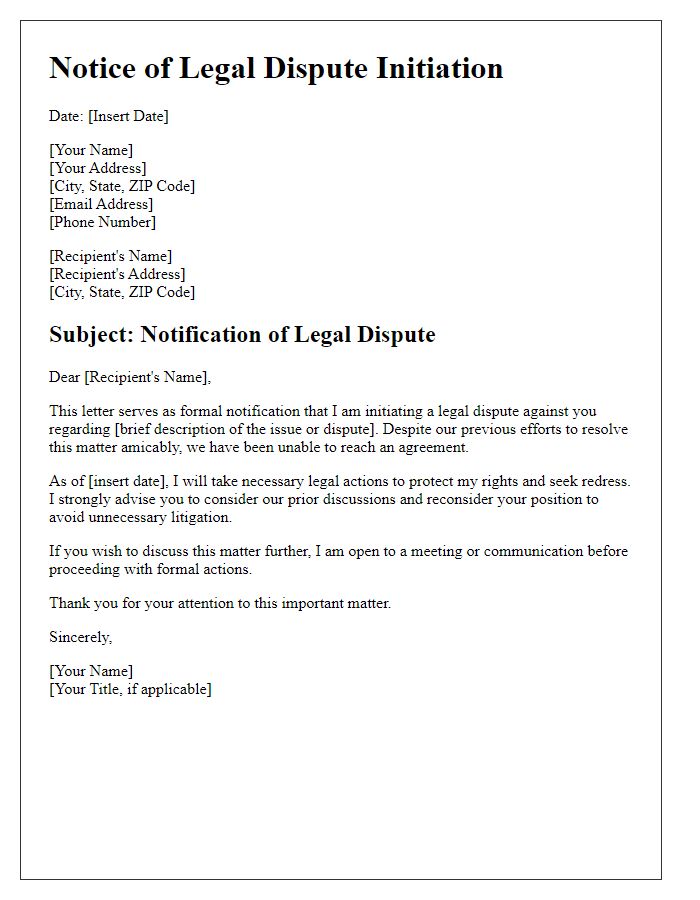
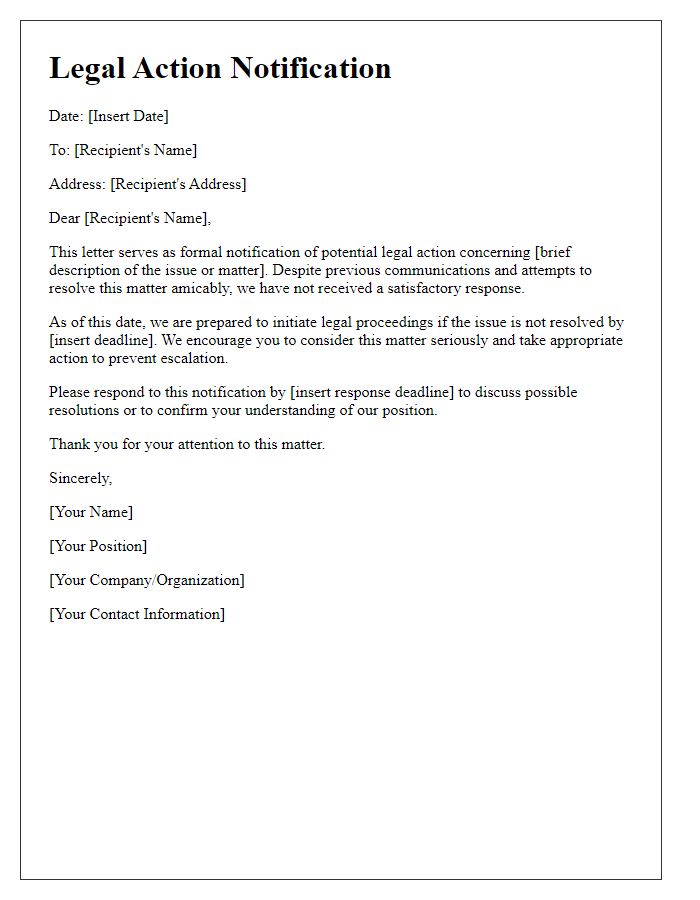
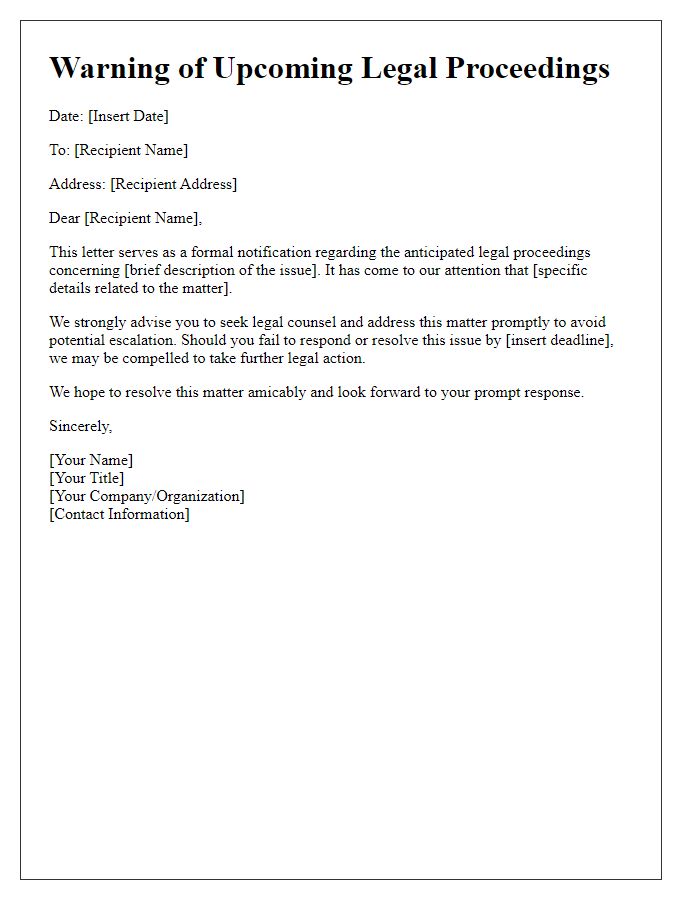
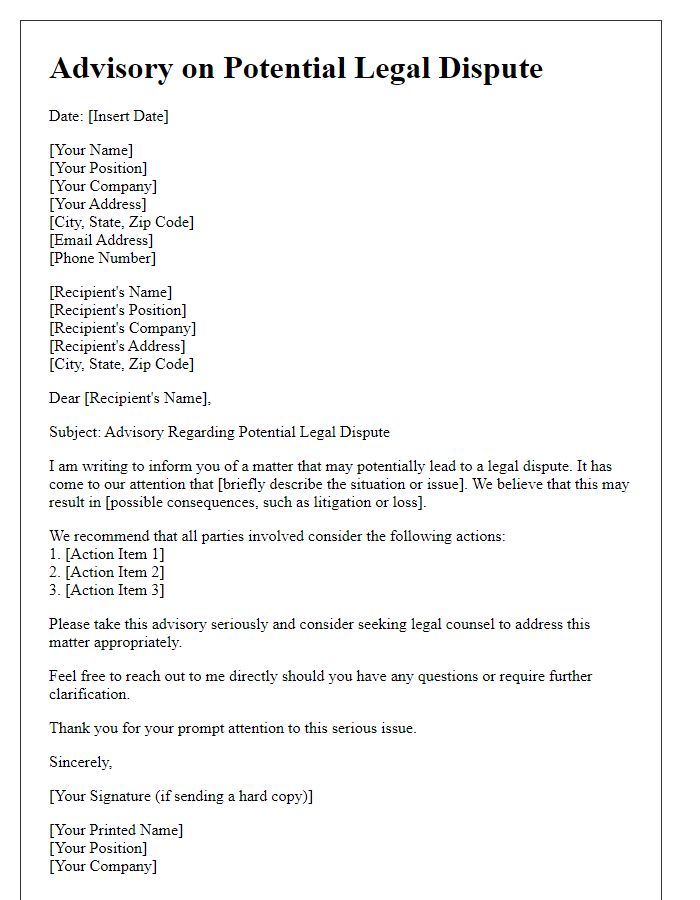
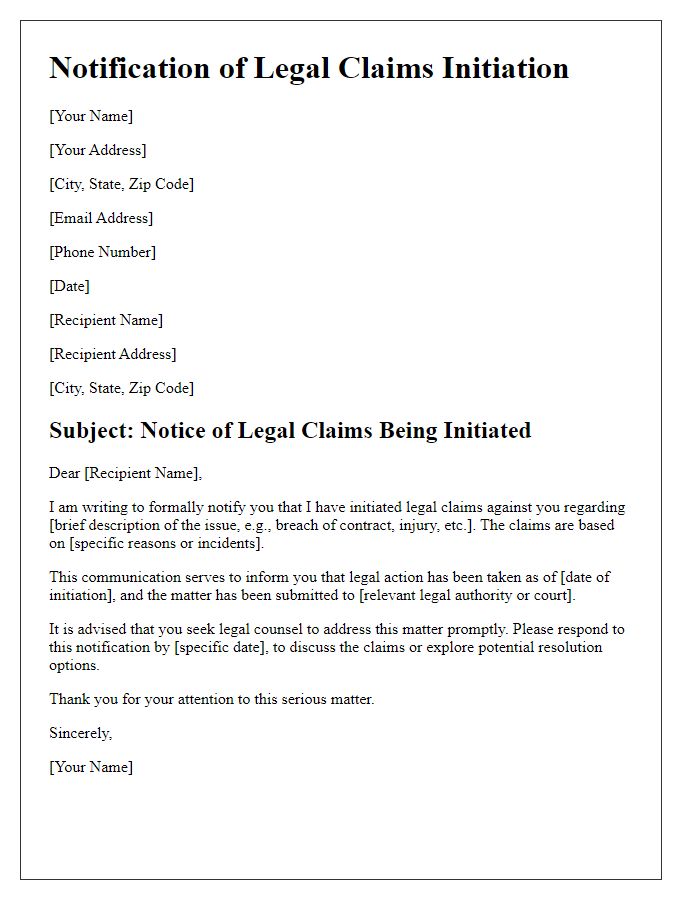
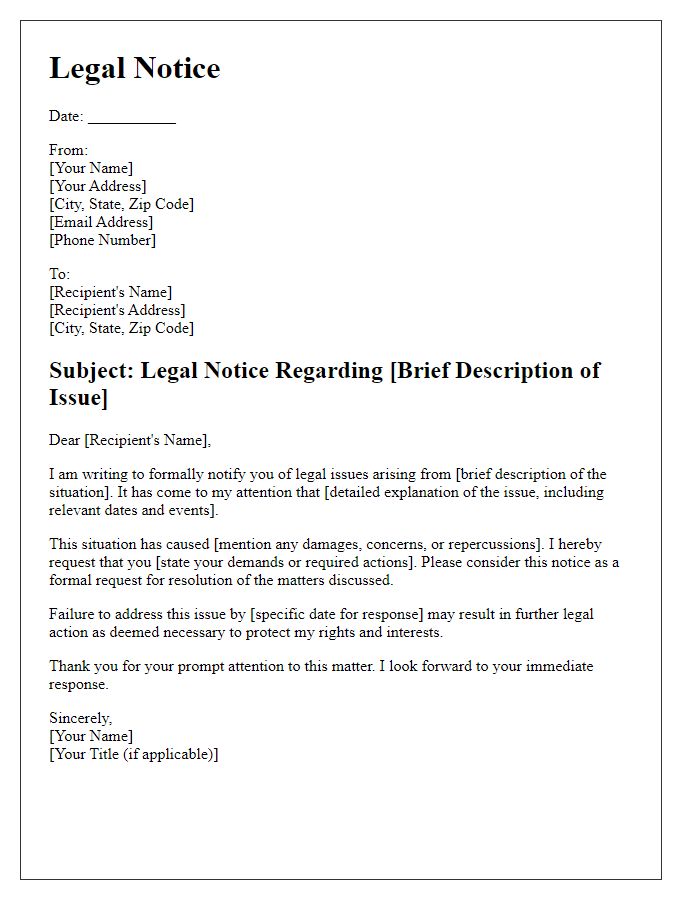
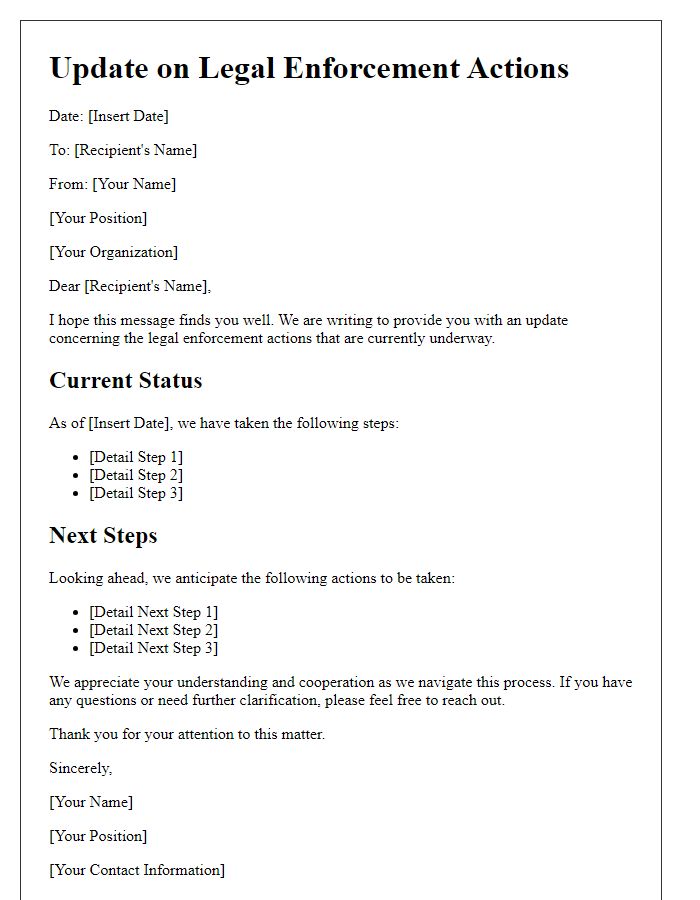
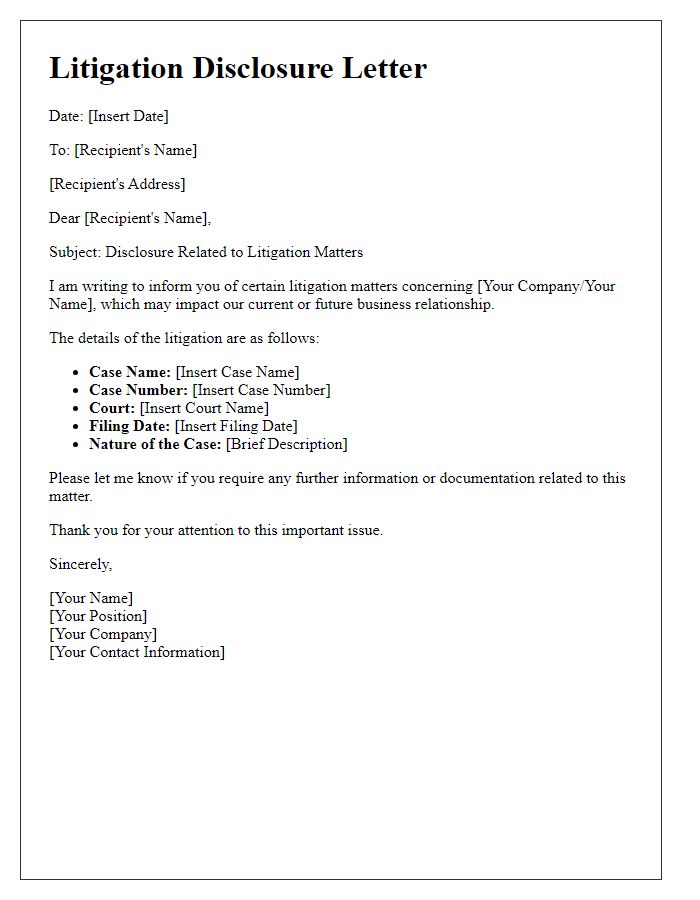

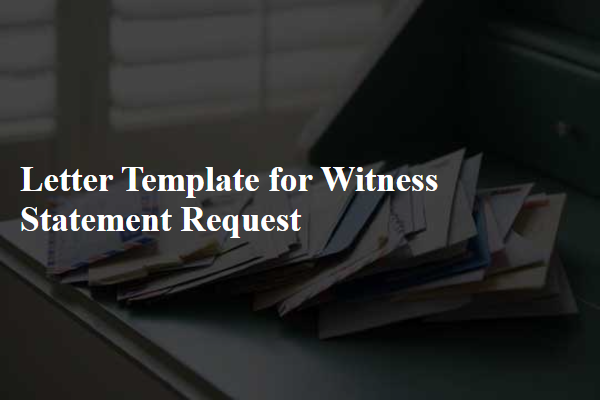
Comments